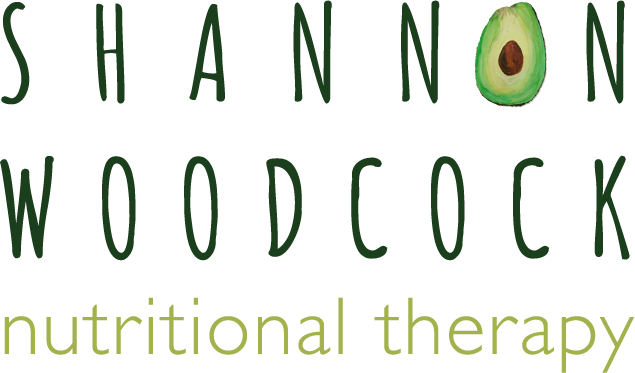No, you’re not crazy…digestive symptoms and weight struggles are connected
Feelings of bloating and the desire to lose weight often go hand-in-hand (nothing is more frustrating than struggling to zip a too-tight pair of pants that you swear fit last week).
But what about other digestive symptoms like gastric reflux, heartburn, and constipation?
Could these be connected to weight loss as well?
YES! Many digestive complaints are linked to poor metabolic health, manifesting as unintended weight gain.
Digestion and gut health are integral to all aspects of health! Whatever your health goals are—weight loss, more energy, less aches and pains—digestion must be addressed for you to see the results you’re looking for.
Let’s look at a few of the most common digestive complaints I see in my practice and how they connect to your overall health.
Gastric reflux (GERD) and heartburn
These uncomfortable symptoms indicate that your digestive system is not working optimally.
There are a few causes of GERD and heartburn, including slow motility (how quickly or slowly food moves through your digestive system) and poor lower esophageal sphincter tone, both of which can be addressed through food-first solutions and lifestyle changes (1, 2).
What many people don’t realize is that if you suffer from GERD or heartburn, you may not be getting all the nutrients you need.
GERD symptoms can lead to food avoidance due to fear of a flare-up. Furthermore, the medications used to treat GERD and reflux (like proton pump inhibitors, think Prilosec and Nexium) lower your production of stomach acid, which your body needs to digest proteins and B vitamins. A lack of these vital nutrients will tank your energy and make reaching body composition goals, like more muscle and less fat, difficult.
Bloating
We have all struggled with bloating at some point, and it’s important to know that occasional bloating is normal.
You may feel more bloated around your period or after indulging in foods that you don’t usually eat.
But if bloating is a daily struggle, consider that a big flashing sign that something is amiss in your gut. Food sensitivities and gut bacteria imbalances (dysbiosis) are two common culprits behind bloating. Both of these can also lead to inflammation throughout the entire body (have you ever noticed that when you feel bloated, you also feel icky all over? That’s inflammation at play).
Despite how common bloating is in women, it's actually one of the first symptoms that resolve for my RESTART students after cutting out added sugar and ultra-processed foods.
This is because these foods often contain ingredients that negatively impact your good gut bacteria and increase bad gut bacteria…reducing these irritating foods helps bring your gut microbiome back to balance.
Constipation
Similar to bloating, occasional constipation is normal. You might struggle with this while traveling or during a stressful period, which is a normal response to heightened sympathetic nervous system activity (aka fight or flight).
But if you can’t remember the last time you had a daily bowel movement, your gut needs help! Regularity is essential for women because of the gut's role in estrogen detoxification.
Your body breaks down estrogen through your built-in detoxification system, recycling what it needs and eliminating the rest.
This happens in your gut and is primarily regulated by a part of your gut bacteria called the estrobolome (3, 4). Constipation affects estrogen balance because when stool is sitting in your colon for too long, it allows estrogen to be reabsorbed and recirculated through your body.
This can lead to symptoms like increased belly fat, painful periods, mood swings, and poor sleep. It has even been observed that good bowel motility protects against breast cancer (5).
Luckily, constipation and other common gut issues are often resolved through diet.
Because your digestive system's primary role is digestion, looking at food first when you are plagued by digestive discomfort makes sense. And this is the best way to start—when it's done correctly.
What I mean by this is, too often, I see women who over-restrict themselves, putting a myriad of foods on the “no” list because they are worried they might cause symptoms to flare up.
This ends in one of two ways. Either meal times become increasingly stressful (a never-ending list of food restrictions is a great way to suck the joy out of life) or what I call the “f*ck it” approach. This is when the planning, diet rules, and symptoms become too much, and you simply throw your hands up and quit. The second scenario usually involves a return to reliance on medications like Prevacid, Tums, or laxatives.
And I get it—figuring out what to eat to not only soothe your gut but lose a few extra pounds is not a walk in the park. If it were, everyone would be living their best life, free from bubble guts and empowered with the confidence to enter shorts season with no regrets.
My job as a nutritional therapy practitioner is to make it as easy as possible for you not only to find your food triggers but also to help you figure out a nourishing and delicious food plan that allows healing and fosters sustainable and realistic shifts in diet and lifestyle.
Oh, and I want you to actually like what you eat—no boiled chicken and steamed broccoli on rotation over here unless that's your thing.
So, where should you start?
Luckily, foundational support is the key to solving both digestive struggles and weight loss.
And the foundations of gut health, digestion, and blood sugar balance are the bedrock of my nutrition practice.
Let me quickly break down why these are so pivotal.
Supporting your gut health is a no-brainer when it comes to digestive symptoms. But what many people don’t realize is that it is also a vital part of a weight loss plan.
Your gut microbiome—the community of trillions of bacteria, yeast, and fungi within your gut, is integral to both metabolic health and fat loss. Your gut microbes also control how many calories you absorb from your food and how full or hungry you feel (6). This is why cultivating a balanced and diverse gut ecosystem is a great jumping-off point for any type of weight loss goal.
For this, focusing on certain foods while avoiding others is necessary, particularly in the beginning. The main type of food I recommended avoiding is ultra-processed foods. These contain inflammatory additives and copious amounts of sugar that can contribute to gut inflammation and the overgrowth of bad gut bacteria.
When it comes to blood sugar balance, the core dietary adjustments are similar, with a major focus on reducing ultra-processed foods and cutting way back on added sugars.
Eating lots of sugary foods and not enough nutrient-dense foods puts you on a blood sugar roller coaster. This leads to noticeable symptoms like waking up feeling nauseous, the 3 pm energy crash, feeling hangry, and even difficulty sleeping. But it also contributes to internal symptoms you might have thought are unrelated—bloating, heartburn, and fat gain around your torso.
You may be thinking...but, wait…do I really have to stop eating sugar forever?
No, not forever!
You and only you get to decide on how many sugary treats you have in your life. But if you are serious about your health goals, I highly recommend letting your body experience a period of significantly less sugar to see how you feel.
The same applies to ultra-processed foods. Cutting them out can be truly life-changing, but you won’t know until you try!
Thankfully, you don’t have to do it alone.
In my yearly RESTART group program, I’ll gently guide you to focus on foods you love while cutting out sugary and ultra-processed foods for 3 (surprisingly fun!) weeks!
You can also check out my free gut guide for support in the meantime.


